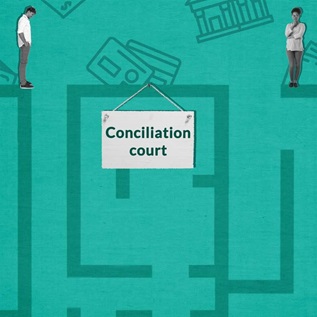TD Bank Adopts Pew's Simple Disclosure Document
Pew Applauds TD Bank, Inland Bank, University of Illinois Employees Credit Union, and Eastman Credit Union for Making Checking Account Fees and Account Terms More Transparent
Today TD Bank became the second major bank to announce that it will voluntarily adopt Pew's simple disclosure for checking accounts. Pew's Safe Checking in the Electronic Age Project created the short and concise model disclosure to give financial institutions a tool to make their checking account terms and fees more transparent and easier for consumers to understand.
TD Bank joins Illinois' Inland Bank, University of Illinois Employees Credit Union, and Tennessee's Eastman Credit Union who have also recently introduced Pew's simple disclosure to their customers.
“We commend these financial institutions for providing their checking account holders key information in a consumer-friendly way,” said Susan Weinstock, director of Pew's Safe Checking in the Electronic Age Project. “We encourage other banks and credit unions to adopt our simple disclosure form to shield consumers from unexpected fees that are often hidden in over 100 pages of disclosure documents.”
Pew's research shows that the median length of disclosure documents at the nation's 10 largest banks is 111 pages, which makes it difficult for account holders to find important policies and fee information.
A standardized form, such as Pew's model disclosure, allows consumers to have the information needed to comparison shop and determine the checking account that best meets their financial needs. Such a tool allows financial institutions to compete based on clear information about the key fees and terms of the checking accounts they offer.
“At TD Bank we are constantly looking for new ways to make banking convenient for our customers,” said Ryan Bailey, Head of Deposit Products and Pricing, TD Bank. “We want our account holders to be able to see the common fees and features associated with their account. Our new simple account guide is another step on the path that leads to America's Most Convenient Bank.”
This move to make checking account fees more transparent comes at a time when the Consumer Financial Protection Bureau (CFPB) is beginning to launch a series of initiatives to bring greater clarity to how checking accounts work.
Pew is calling on the CFPB to make checking accounts safer and more transparent by requiring financial institutions to:
-
provide customers information about checking account terms and fees in a concise, easy-to-read, uniform format;
-
provide account holders with clear, comprehensive pricing information for all available overdraft options;
-
make overdraft penalty fees reasonable and proportional to the bank's costs in providing the overdraft loan; and
-
post deposits and withdrawals in a fully disclosed, objective, and neutral manner that does not maximize overdraft fees.
Chase, North Carolina State Employees' Credit Union, and Pentagon Federal Credit Union voluntarily adopted Pew's model disclosure form last year.
Simple Disclosure Documents











